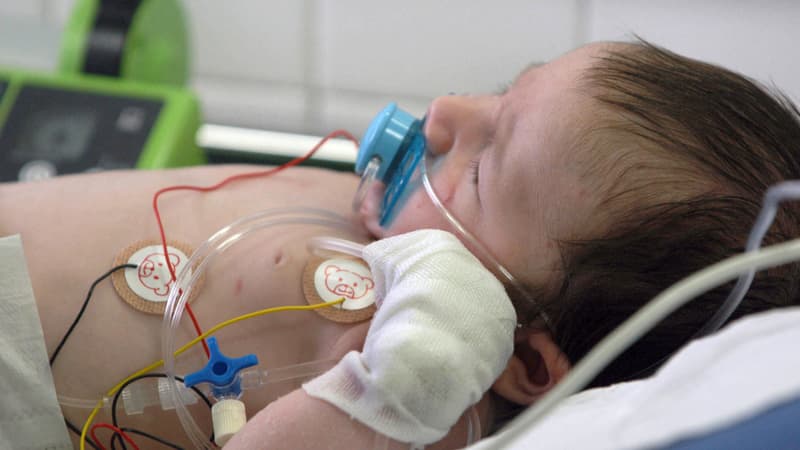Encouraging results. Beyfortus, a preventive medication against bronchiolitis, is effective in preventing severe cases and reducing hospitalizations in babies, according to two French studies released by Public Health France this Friday, April 26.
Also called nirsevimab, the drug is intended for babies experiencing their first season of exposure to the respiratory syncytial virus, which causes the disease.
More than 250,000 babies have been immunized in maternity hospitals since the launch of a major campaign on September 15, 2023, the General Directorate of Health explained in February 2024.
Thousands of hospitalizations avoided
“To evaluate the effectiveness of Beyfortus administration, two additional studies were carried out in collaboration between the Pasteur Institute and Public Health France,” explains SpF in a press release this Friday.
The first refers to “the estimation of the real efficacy of nirsevimab against cases of RSV bronchiolitis admitted to intensive care.” The second models the impact in terms of hospitalizations avoided.
Based on the results of these studies, the effectiveness of treatment is estimated to be between 76% and 81% for infants admitted to intensive care. Between September 15, 2023 and January 31, 2024, around 5,800 hospitalizations were avoided, including 4,200 for children between 0 and 2 months old, after going to the emergency room.
“This corresponds to a 23% reduction in the total number of hospitalizations for RSV bronchiolitis after attending the emergency room,” underlines Public Health France.
Every year in France, bronchiolitis affects 30% of children under 2 years of age, according to Health Insurance. “It is characterized by an episode of respiratory discomfort, whose signs are cough and rapid, wheezing breathing” and “lasts an average of ten days,” according to the same source. If it is a “benign” disease, babies under two months old and fragile babies “require careful monitoring and are therefore hospitalized.”
Source: BFM TV


